Creality Falcon A1 vs. A1 Pro: Key Differences Explained
If you've been happily crafting with your Falcon A1, the shiny new A1 Pro might have you wondering: Am I really missing out?
We've put both machines head-to-head to see what's genuinely better, what's just nice to have, and whether the upgrade is worth your hard-earned cash.
Introduction of Creality Falcon A1
Released in the first quarter of 2025, the Creality Falcon A1 is an enclosed 10W diode laser engraver designed with a strong emphasis on safety and user-friendliness, making it ideal for enclosed spaces like workshops or homes.

Its most prominent feature is the fully enclosed, transparent design, which achieves a Class 1 safety rating by completely containing smoke and preventing accidental exposure to the laser beam.
Although technical specifications can be dense, it's crucial to review them to ensure the laser meets your project requirements.
|
Feature |
Specification |
|
Laser Power |
10W |
|
Engraving Area |
305mm x 381mm |
|
Machine Power (MAX) |
120W |
|
Laser Type |
Diode Laser |
|
Laser Wavelength |
455±15 nm |
|
Laser Spot Size |
0.06mm x 0.08mm |
|
Max Engraving Speed |
600mm/s |
|
Motion System |
CoreXY |
|
Camera |
Yes, Built-in |
|
Safety Features |
Class 1 Laser Safety, Enclosed Design, 8 Safety Shields |
|
Connectivity |
USB |
|
Supported Software |
LightBurn, LaserGRBL, Falcon Design Space |
|
Supported Operating Systems |
Windows/MacOS |
|
Supported File Formats |
jpeg, jpg, png, bmp, svg, dxf, etc. |
|
Supported Materials |
Cardboard, wood, bamboo, rubber, leather, fabric, acrylic, plastic, etc. |
|
Machine Size |
567mm x 468mm x 196mm |
|
Machine Weight |
15.55 kg |
|
Input Voltage |
100~240V~ 50~60Hz |
|
Output Voltage |
DC 24.0V 5.0A |
Introduction of Creality Falcon A1 Pro
Released on August 5, 2025, the Creality Falcon A1 Pro is an enclosed desktop laser engraver featuring a dual-laser system. It combines a 20W blue laser for standard materials with a 2W infrared laser for detailed work on metals and plastics.

Detailed Specification of Creality Falcon A1 Pro:
|
Feature |
Specification |
|
Laser Power |
20W & 2W |
|
Engraving Area |
268mm x 358mm |
|
Laser Type |
Diode Laser (20W), Infrared Laser (2W) |
|
Laser Wavelength |
455±5nm (Blue), 1064±1nm (IR) |
|
Laser Spot Size |
0.08mm x 0.1mm (Blue), 0.03mm x 0.03mm (IR) |
|
Max. Working Speed |
600mm/s |
|
Camera |
Yes, with AI Autofocus |
|
Display |
4.3-inch Touchscreen |
|
IoT Function |
Yes |
|
Safety Features |
Class 1 Laser Safety, Enclosed Design, 8 Safety Shields |
|
Connectivity |
USB, Wi-Fi, App Control |
|
Supported Software |
Falcon Design Space, LightBurn, LaserGRBL |
|
Supported Operating Systems |
Windows/MacOS |
|
Supported File Formats |
jpeg, jpg, png, bmp, svg, dxf, etc. |
|
Supported Materials |
20W: Wood, Acrylic, Glass, Painted Metal, Stainless Steel; 2W IR: Gold, Silver, Brass, Iron, Aluminum, Plastic, Dark Opaque Acrylic, etc. |
|
Machine Size |
567mm x 468mm x 211mm |
|
Machine Weight |
16.8 kg |
|
Input Voltage |
100~240V~ 50~60Hz |
|
Output Voltage |
DC 24.0V 7.5A |
3 Major Upgrades from Falcon A1 to A1 Pro
The reason we call it A1 Pro because there are 3 big upgrades from Falcon A1. These exciting features will make your engraving process more highly effective and smooth.
A1 Pro isn't just a name—it's a promise. With three big upgrades over the Falcon A1, it makes every engraving faster, smoother, and more efficient.
1. Laser Power and Laser Type
The power boost is one of the most noticeable upgrades. While 10W is enough to engrave most plywood and non-transparent acrylic, the higher wattage lets you work faster and cut down on processing time.

Laser Power:
- Creality Falcon A1: 10W Diode Laser Power
- Creality Falcon A1 Pro: 20W Diode Laser Power & 2W Infrared Laser
Compared to blue diode lasers (~455 nm), infrared lasers (1064 nm) engrave bare metals and certain plastics more effectively, offer finer detail with a smaller spot size, and produce less heat damage—while blue diode lasers excel at cutting thicker non-metal materials and are more cost-effective.
2. Smart Screen Control
No more working blind or being stuck to your PC—the Falcon A1 Pro's touchscreen lets you load files, preview projects, and adjust settings right on the machine, making every step faster and easier.

- 4.3-inch full-color display for viewing the interface and menus
- Standalone operation without the need for a connected computer
- Load files and manage projects directly from the screen
- Real-time project preview for positioning and alignment
- Adjust parameters such as speed, power, and focus from the screen
- Built-in Wi-Fi for wireless file transfer from a phone or laptop
3. Autofocus
The Falcon A1 Pro is equipped with an "Instant AutoFocus" system, which is a key component of its AI-supported vision system.

This feature is designed to completely free the user from the need to make manual focus adjustments.
This automated process is significantly more convenient than traditional methods, which require using a physical focusing jig to set the correct distance.
In-Depth Video Review: Creality Falcon A1 Pro
Here's one of the most-viewed video reviews on YouTube to help you get a comprehensive understanding of the Creality Falcon A1 Pro.
Which Should I Choose between Falcon A1 and A1 Pro
If you're a hobbyist owner whose work mainly involves engraving wood, acrylic, leather, or other common non-metal materials at home, the Falcon A1 offers excellent performance at $549.
It's compact, enclosed, and already has features like live camera preview and air assist—plenty for everyday projects.
The Falcon A1 Pro at $1,269 adds major upgrades: a 20W blue diode laser for faster, deeper cuts, a 2W infrared laser for marking bare metals and certain plastics, a smart touchscreen with Wi-Fi control, and AI autofocus.
These make it better for those who work with a wider range of materials, require faster production, or value more convenience and automation.
If your current A1 meets your needs, upgrading isn't essential.
But if you often work with metals, want faster throughput, or prefer a more hands-off setup, the A1 Pro is worth the investment.
For even more cutting power, the Falcon2 Pro 40W at $1,499 could be the best value compared to the Falcon A1 Pro.
FAQS about Creality Falcon A1 and A1 Pro
Here, we've gathered common questions from across the internet about the Creality Falcon A1 and A1 Pro.
1. What is the lifespan of the Creality Falcon 10W
There are two 10W diode laser models available at the Creality Falcon Store:
Falcon 10W (445–455 nm) diode lasers are rated for up to 20,000 hours when run at their nominal current with proper cooling.
2. What kind of laser is the Creality Falcon 10W
There are two 10W diode laser models available at the Creality Falcon Store:
- Falcon CR 10W.
- Falcon A1 10W.
And both of them are diode laser heads.
3. How fast is the Creality 10W laser
Mostly, Engraving speed mainly depends on laser type/wavelength, laser power, and material.
For completeness, a few other big factors also matter:
- Resolution (DPI/line interval) and whether it's raster vs. vector work
- Motion system & acceleration/overscan (e.g., CoreXY vs. belt/gantry)
- Focus/spot size, optics cleanliness, air assist
- Desired result (light mark vs. deep engrave; number of passes)
Actual engraving speed must be verified in practice; as a benchmark, a Falcon 10W diode laser can one-pass cut 6 mm basswood.
4. Which Lightburn version for Creality Falcon A1
We recommend using the latest version of LightBurn to get the most out of your machine. You can also try Falcon Design Space—it's free.
5. Creality Falcon A1 Pro Cannot Manually Focus
We recently saw reports on the LightBurn forum that the Falcon A1 Pro can't be manually focused in LightBurn. Our technical team is working on a fix.
In the meantime, here's a quick workaround: enable Z-axis control in LightBurn and use the Move panel to jog the head up or down to focus with the material in place.
The End
The Falcon A1 series is built for home DIY laser engraving enthusiasts, with plenty of built-in safety features. If you're creating basic crafts with materials like plywood or acrylic, the Falcon A1 Pro makes getting started even easier—and its power is more than enough for those needs.


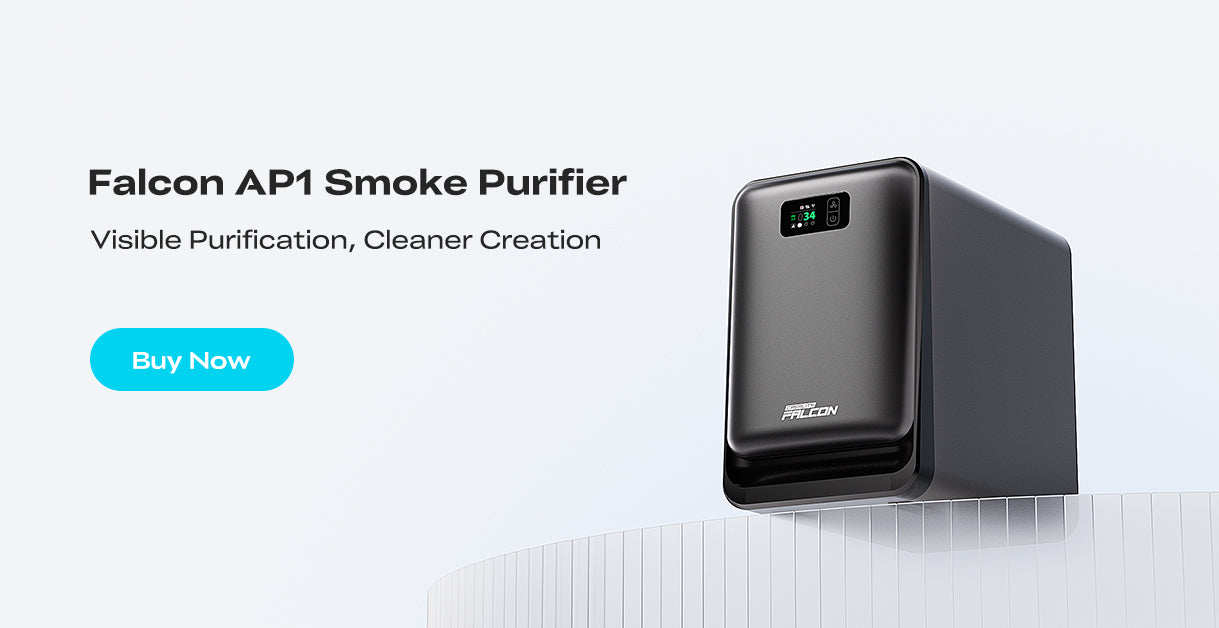



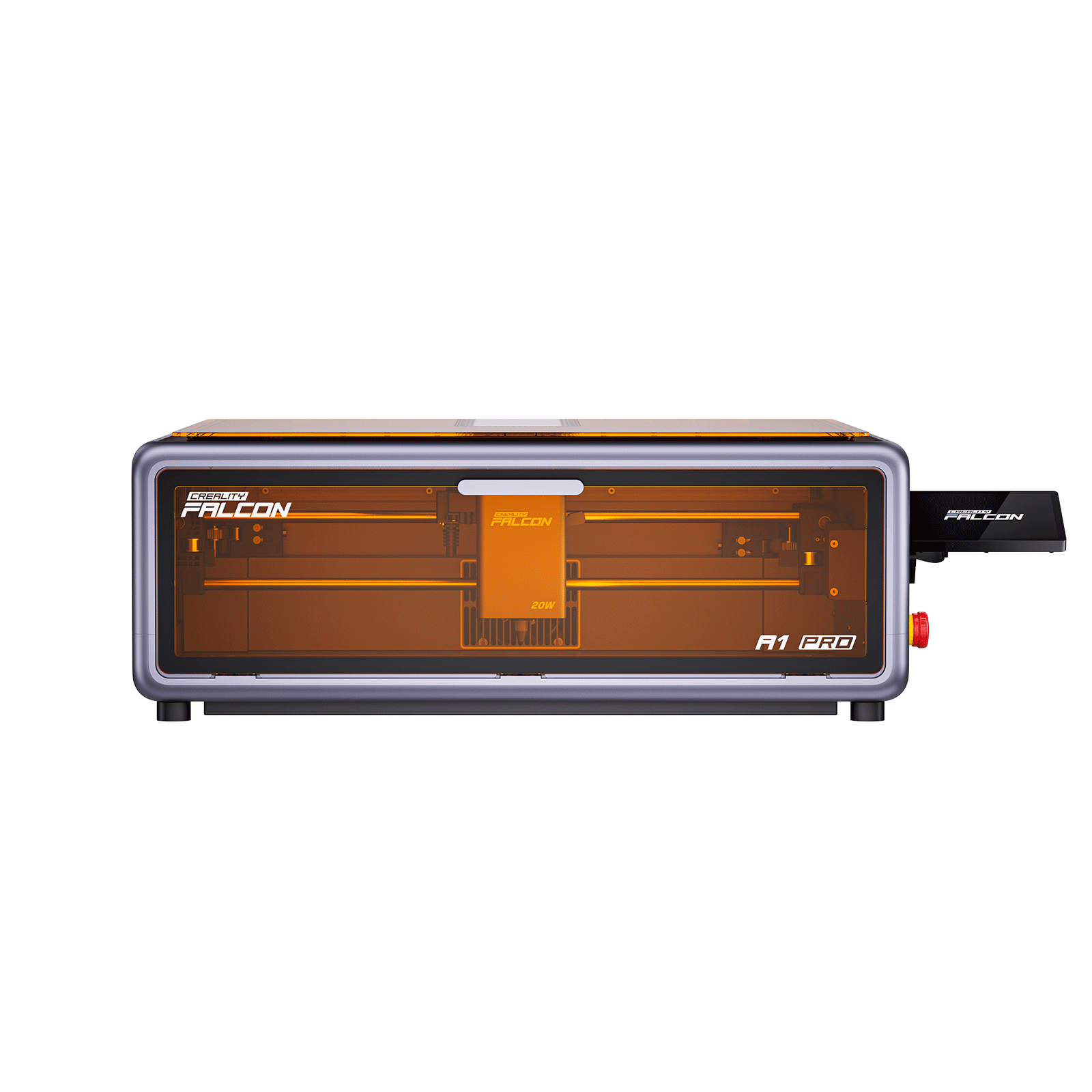


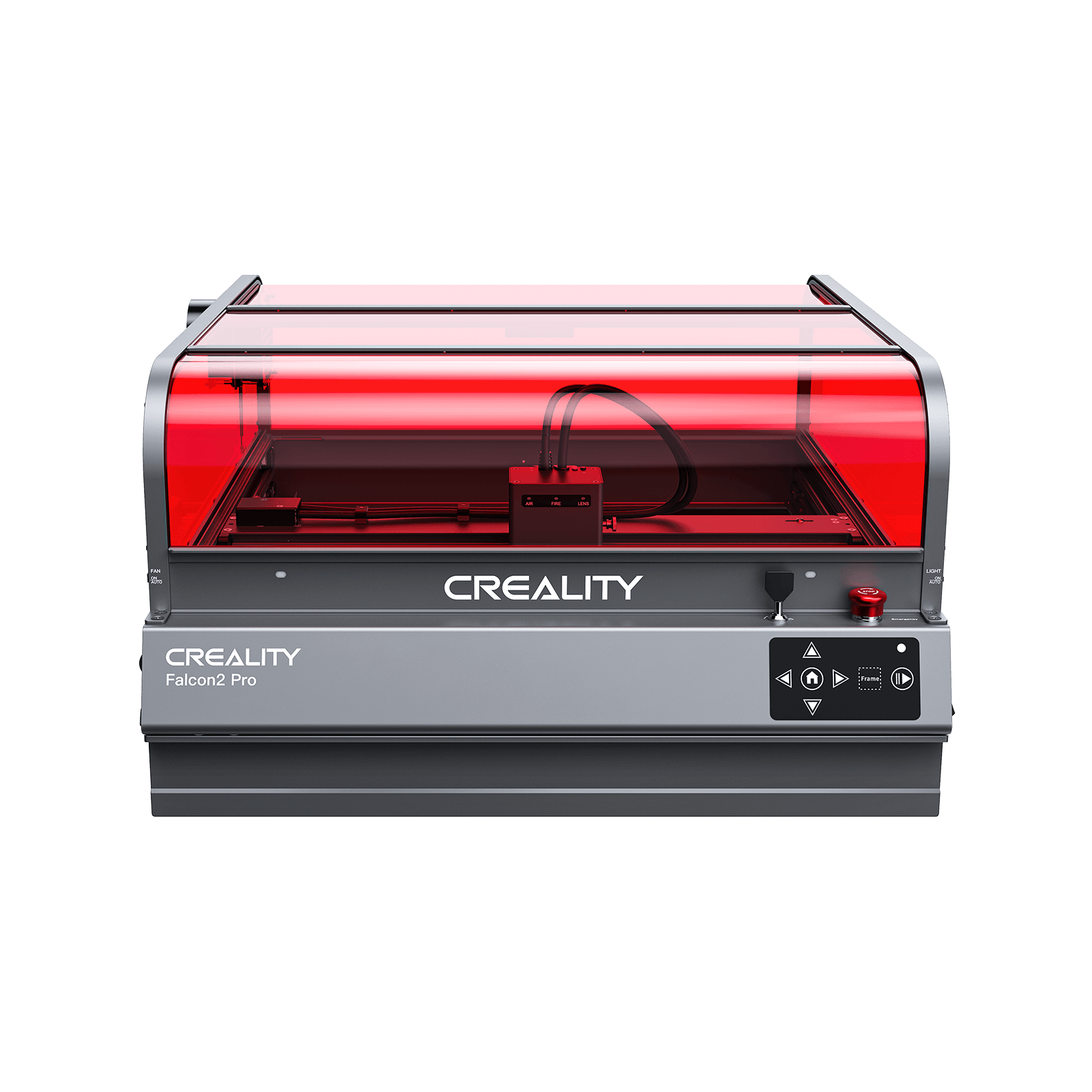






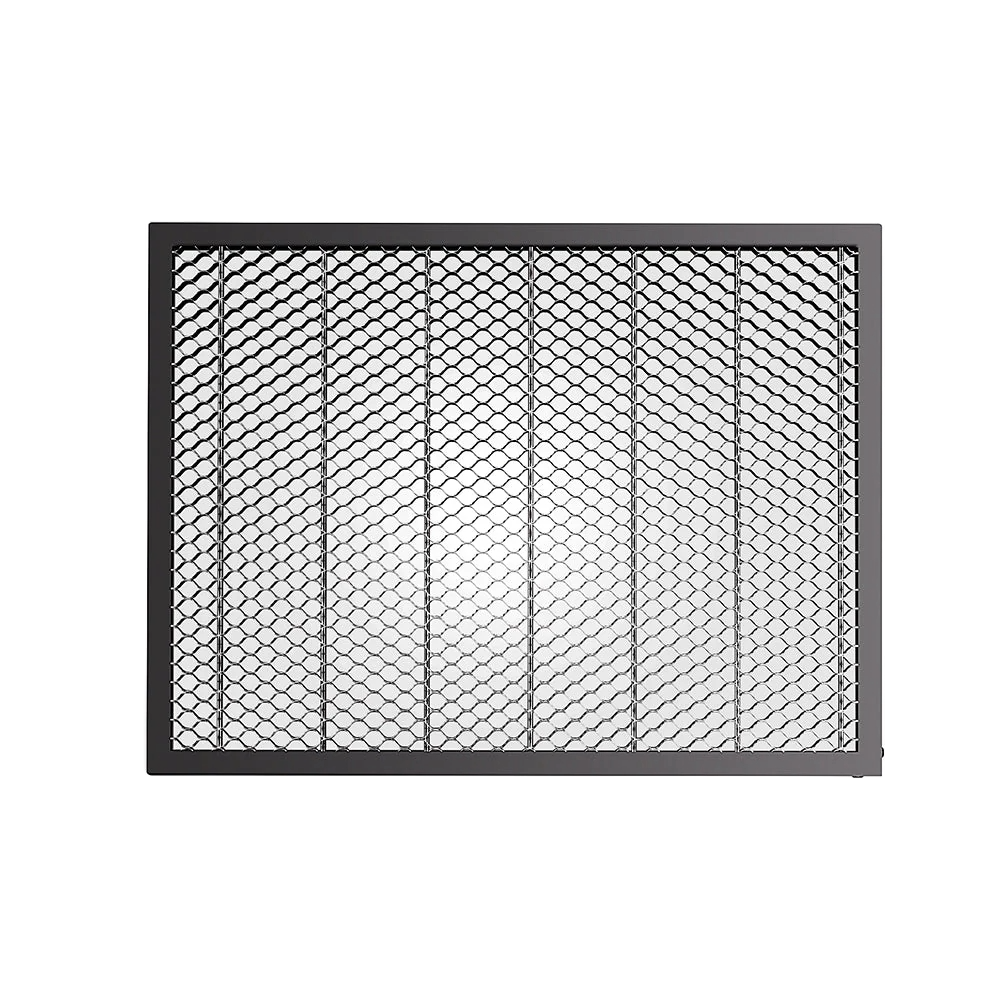







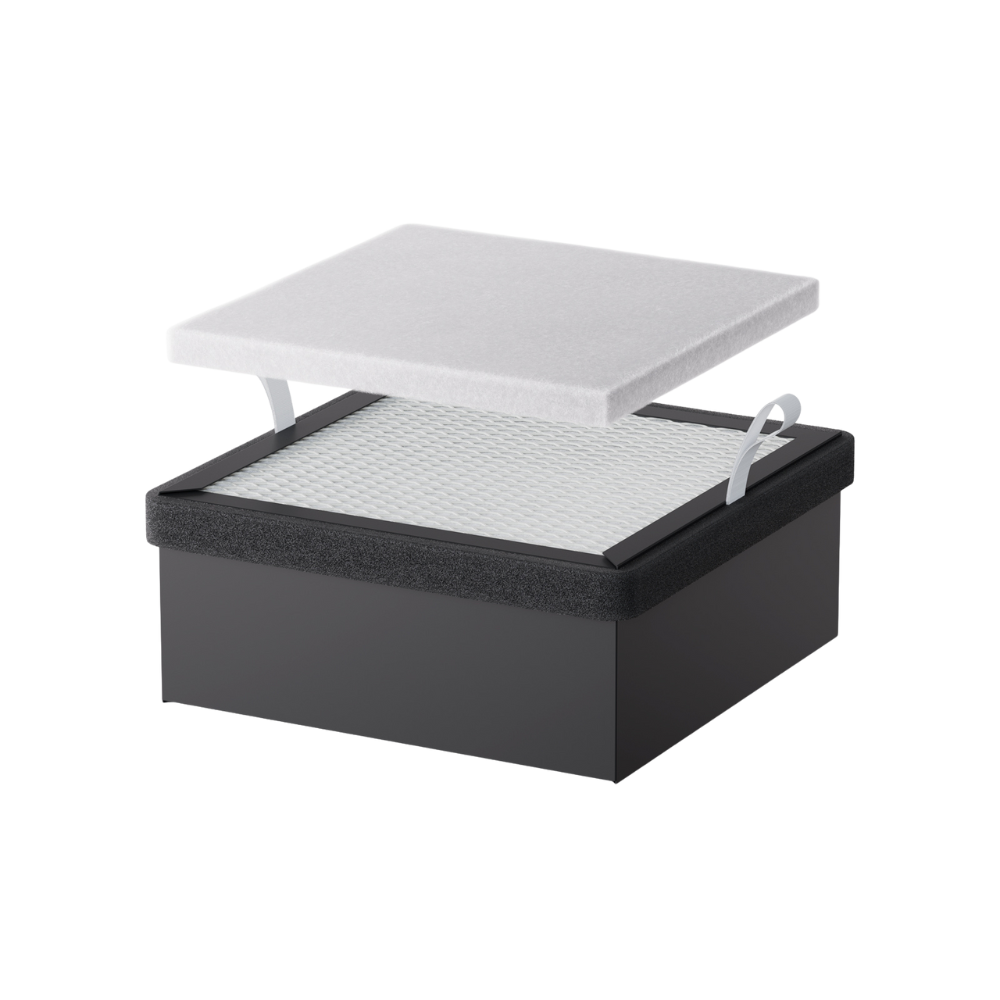







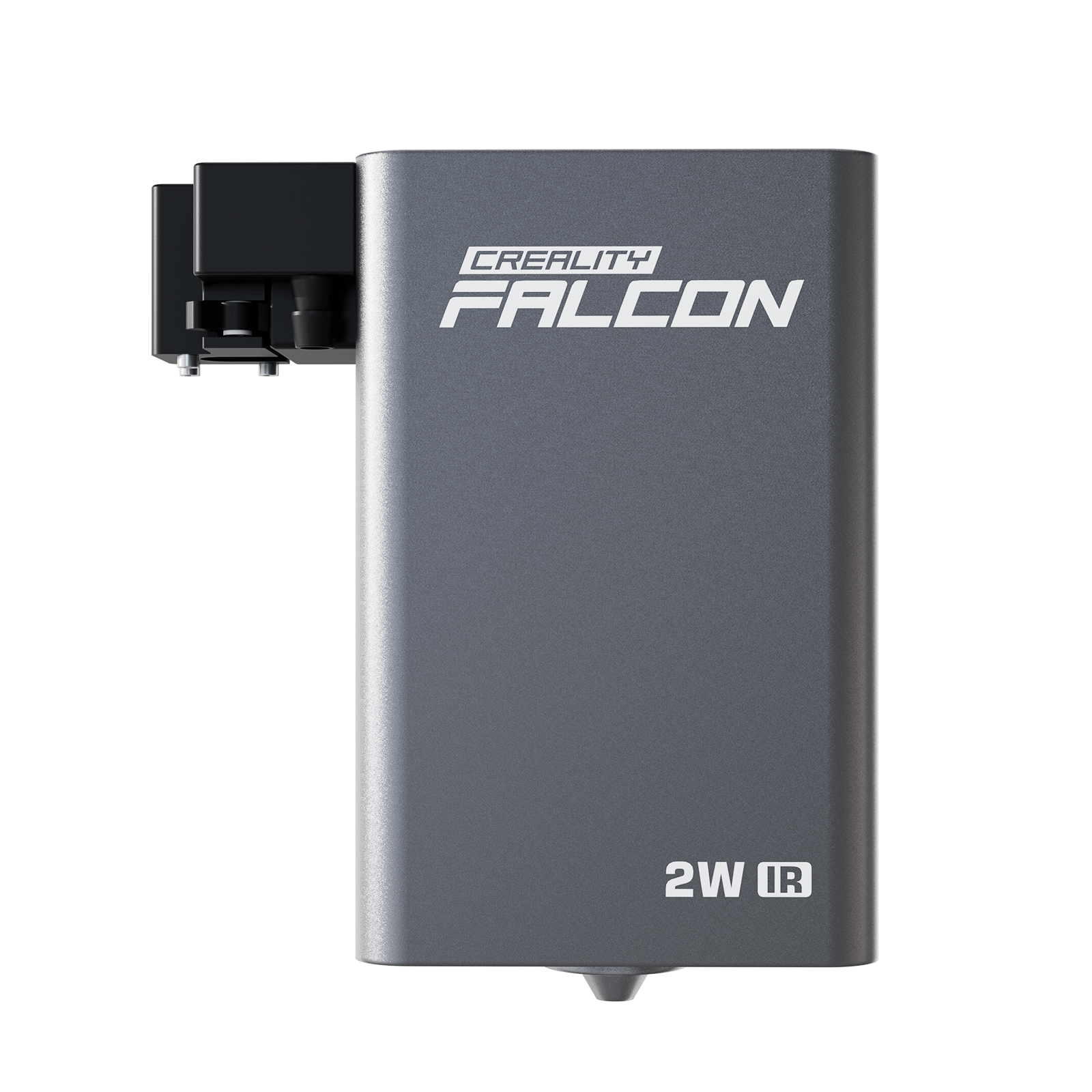







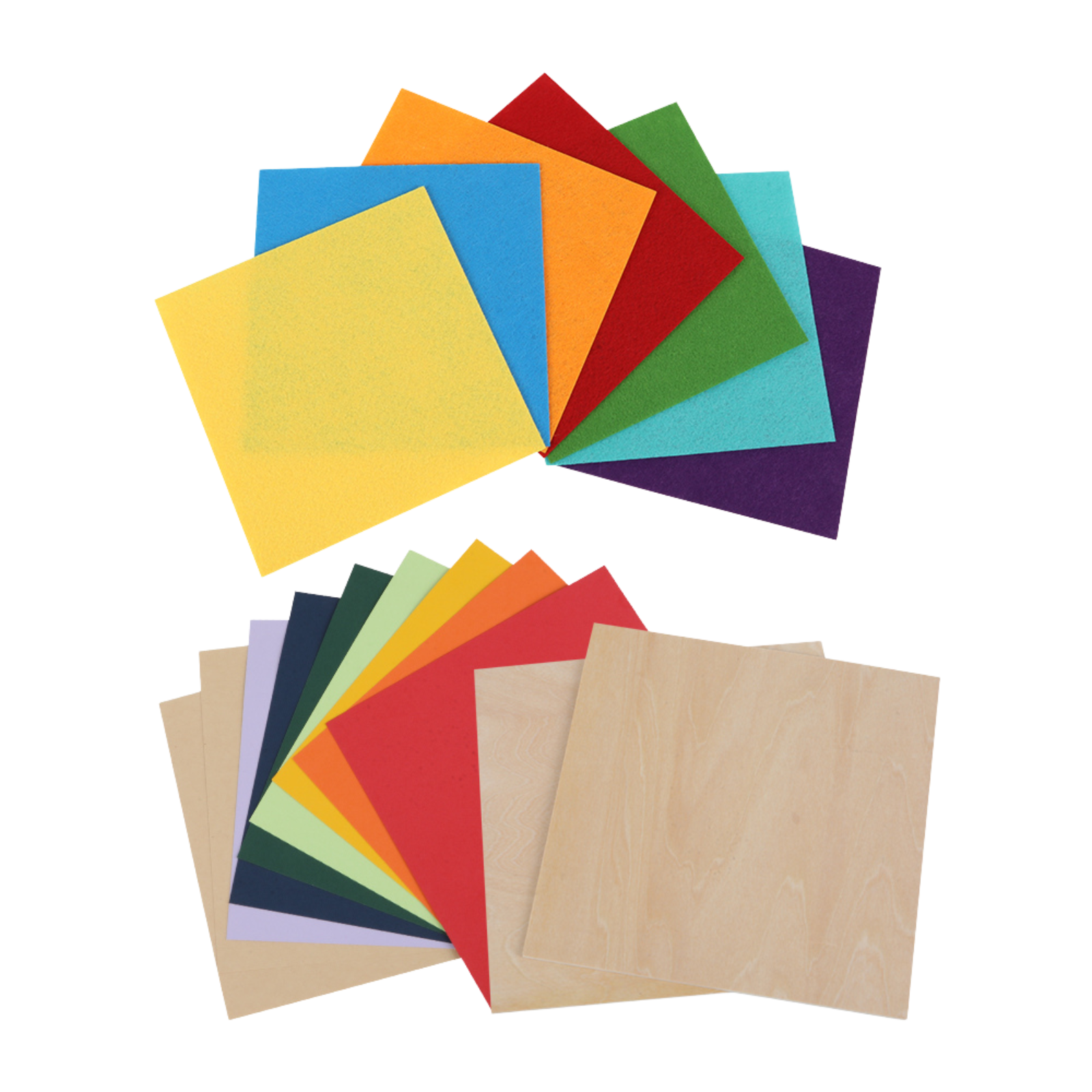
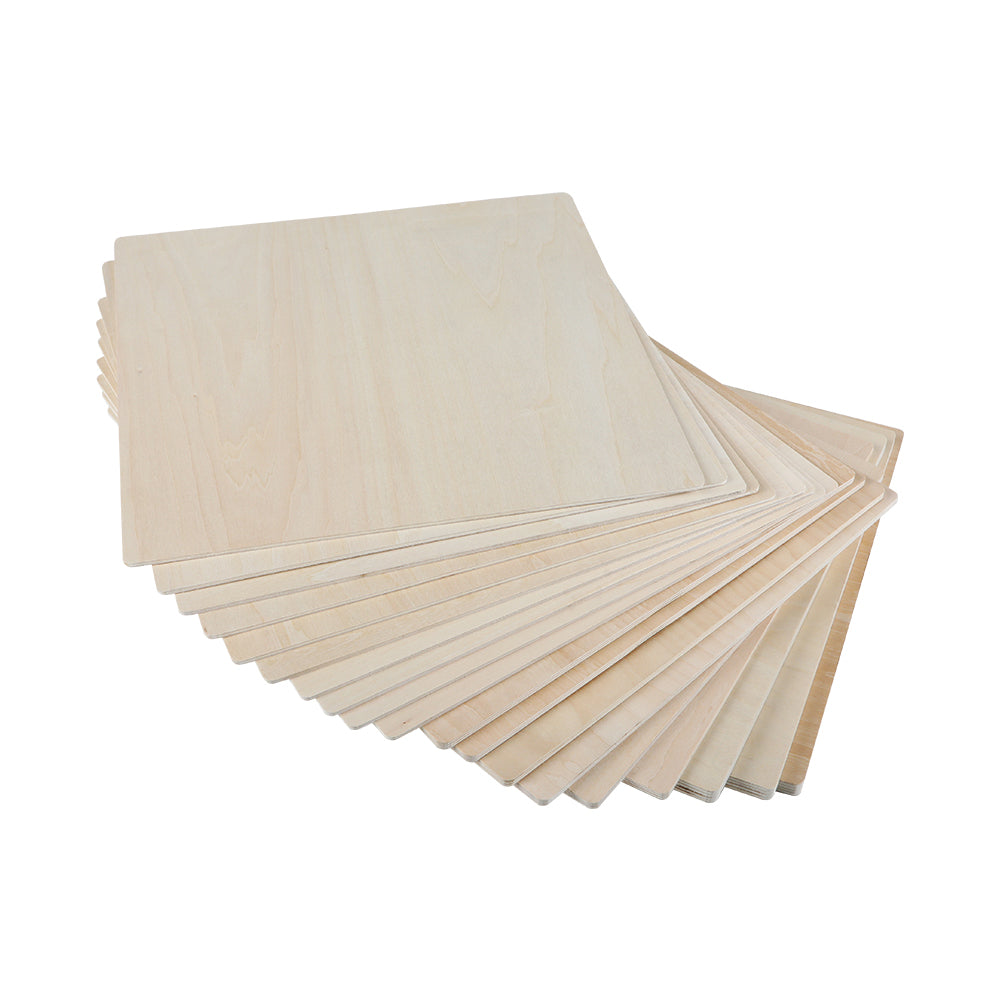








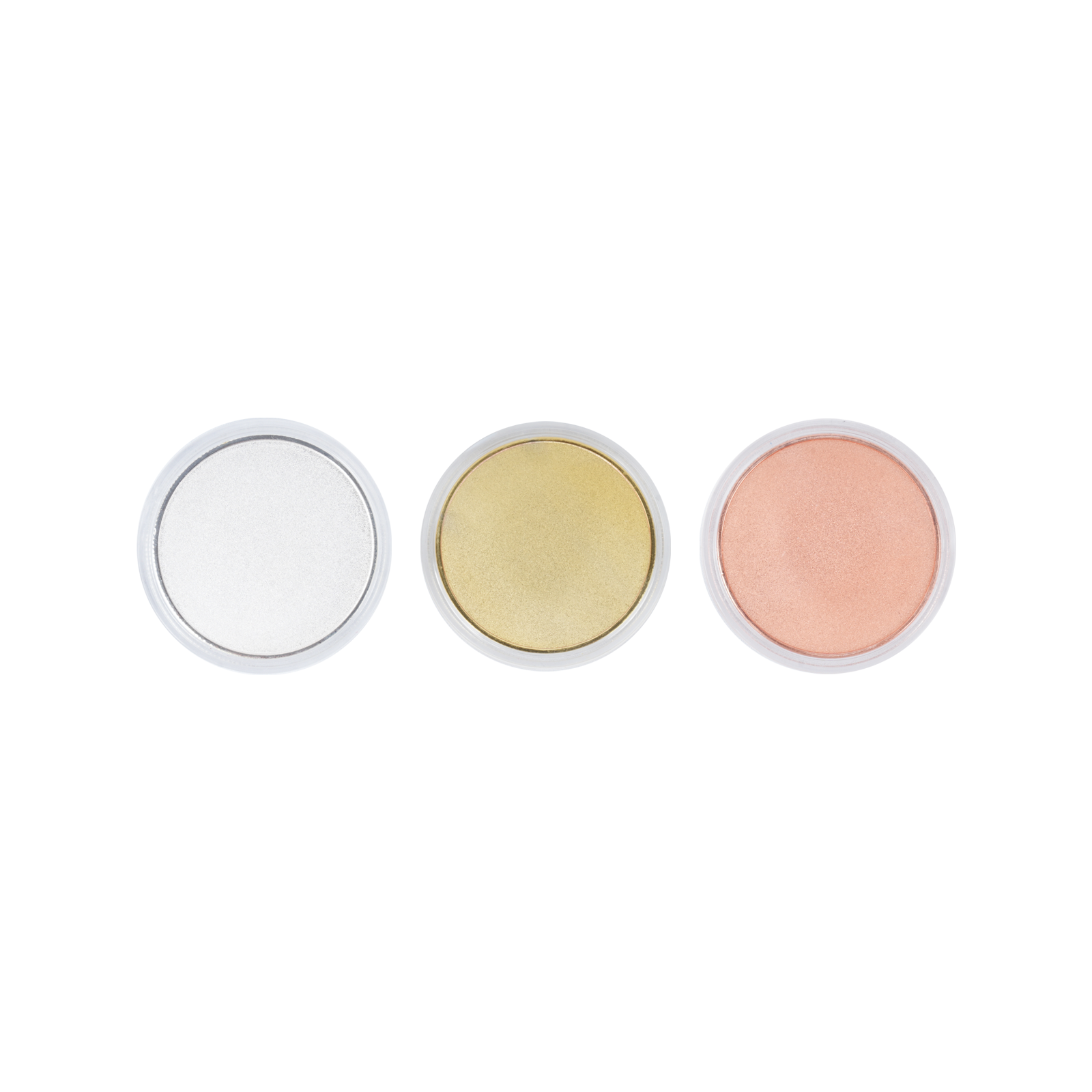
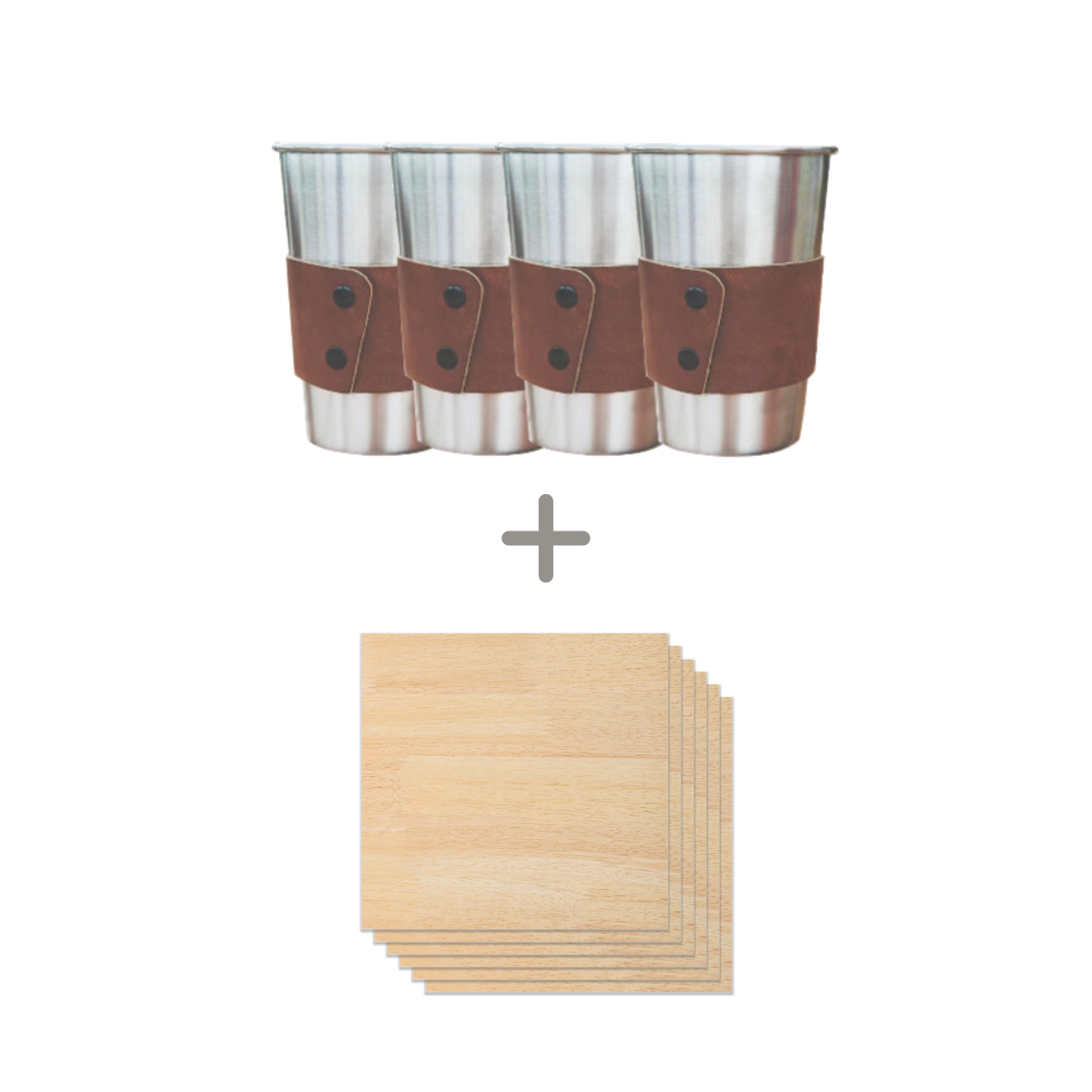
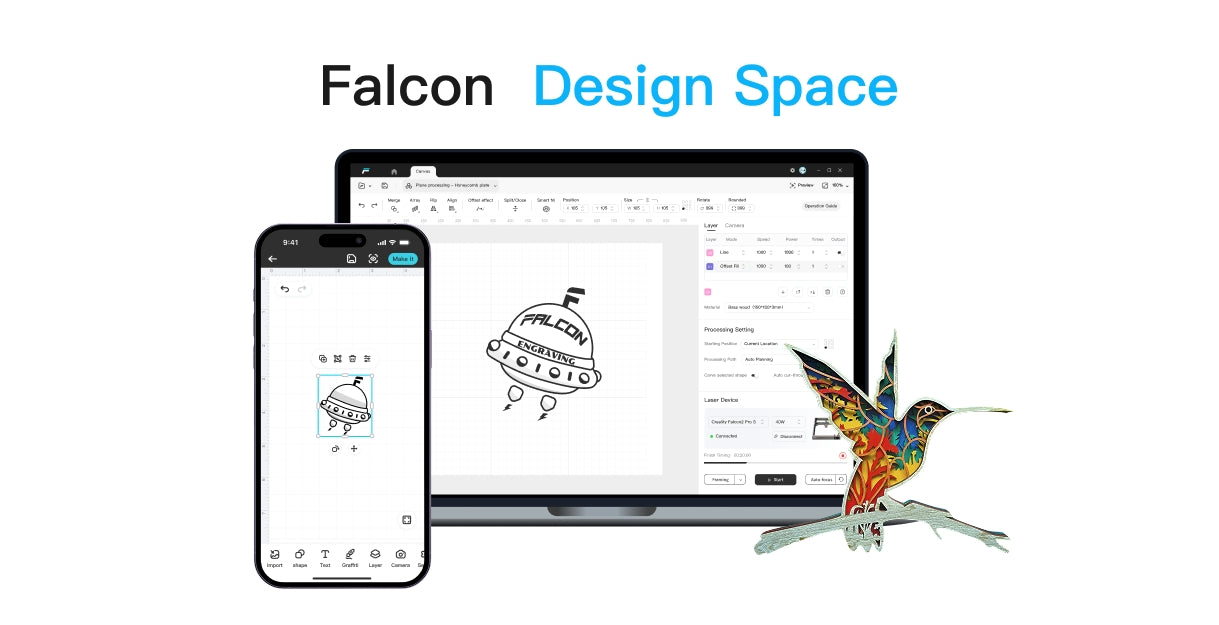




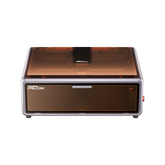
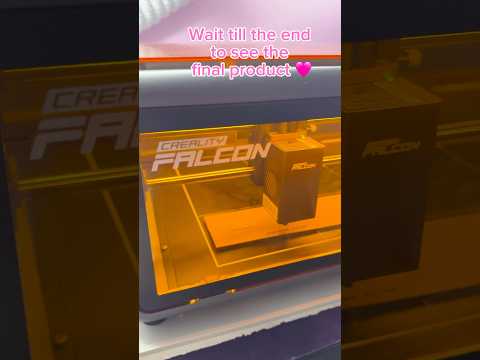
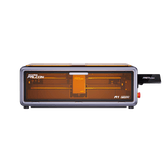
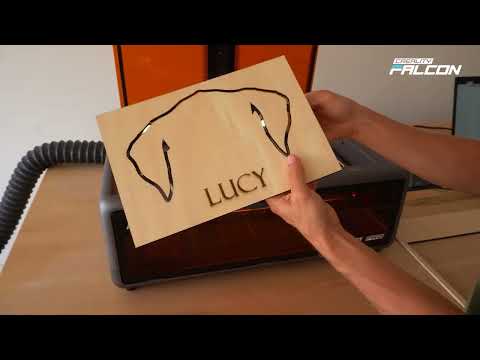
Leave a comment
Please note, comments need to be approved before they are published.